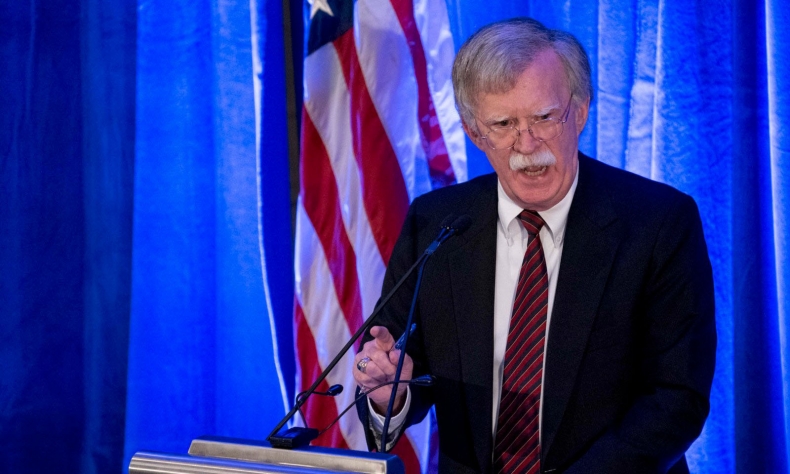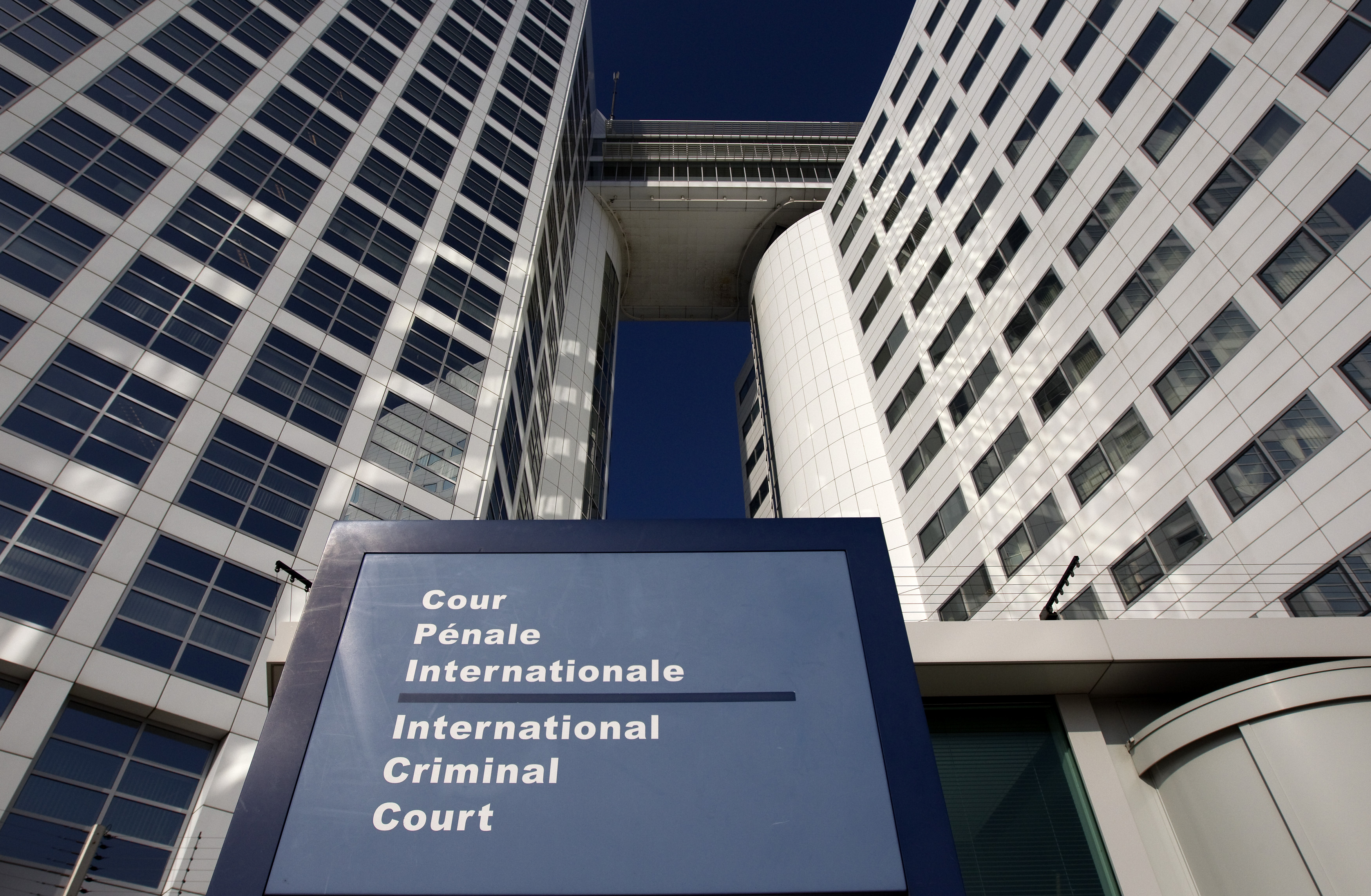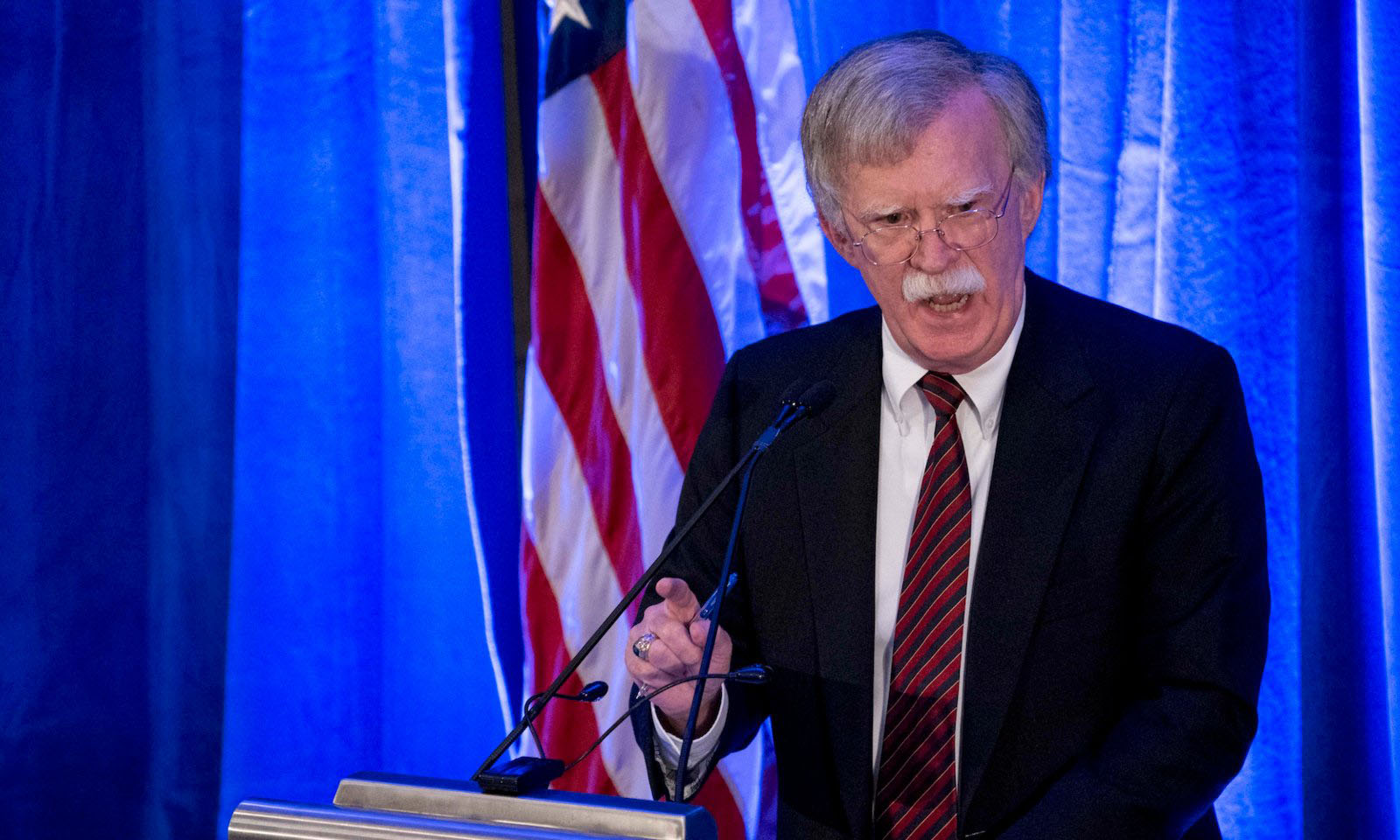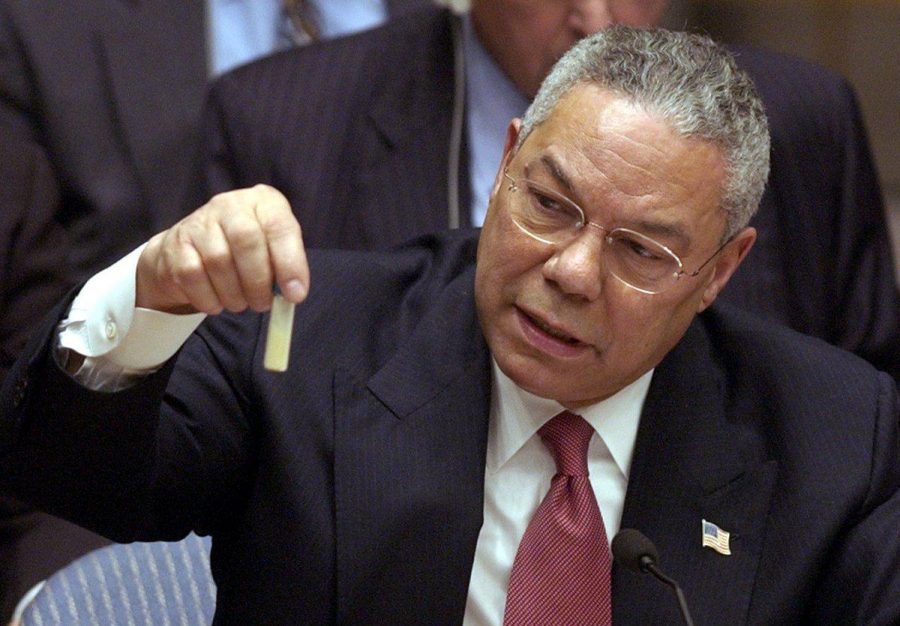Sanction Against International Criminal Court! Is Rome Statute Another Nose-picking Tissue for the US?

The US has always been pragmatic about international laws. And the Rome Statute may just be another piece of tissue that the US used for nose picking.
US National Security Advisor John R. Bolton claimed in a public speech addressed on September 10 that if the International Criminal Court (ICC) in The Hague dares to initiate a trial of war crimes against US military personnel or intelligence personnel, the US will then consider resorting to sanction towards related personnel of ICC.
Δ John Bolton threatened the ICC on Monday and was promptly criticized by human rights groups.
16 years ago, the US representative who announced the withdrawl of US support for the establishment of the ICC’s important document –the Rome Statute – happened to be John R. Bolton too.
What is Rome Statute?
The Rome Statute of the International Criminal Court is a multilateral international treaty adopted at the United Nations General Assembly diplomatic conference on July 17,1998, which aimed at establishing a permanent international tribunal to prosecute individuals against serious crimes.
It is a judicial attempt of the international community to prevent the resurgence of a series of tragedies that occurred around the threshold of 20th century. It is a move forward for human history.
However, due to specific historic reasons, the Rome Statute is fundamentally flawed. Although the preamble to this Statute clearly states that it is necessary to “reaffirm the purposes and principles of the Charter of the United Nations”, if the specific provisions are examined.
For example, as a recognized international law, the Charter of United Nations bestows the Security Council the right of determining the existence of act of aggression, while at the same time, the Rome Statute endows ICC the right to exercise jurisdiction over the crime of aggression, which is contradictory to the Charter of United Nations.
To some provisions in the Rome Statute, there is also room for extending interpretations, which could be taken advantages of by some countries to manipulate the domestic affairs of other countries.
Δ Rohingya refugee children wait to receive food outside the distribution center at Palong Khali refugee camp in Cox’s Bazar, Bangladesh, on November 17, 2017. (File Photo/ Reuters)
Here is the most typical example: Rohingya issue of Myanmar has been included into the jurisdiction of ICC Pre-Trail Chamber recently under the reason that the issue is directly related to ICC signatory state Bangladesh, regardless of the fact that Myanmar is not a contracting party.
Additionally, war is still the biggest threat to world security at present time, but ICC has put the core of its jurisdiction on matters of “human rights”. The human rights in the Rome Statute has been broadly defined, which will undoubtedly put the efficiency of its judicial procedures under question.
When Russian Foreign Ministry announced to withdraw from the Rome Statute in 2016, it pointed out in its statement that ICC had only made four court verdicts in the past 14 years since establishment, while its expenditure had far exceeded $1billion.
ICC had obviously failed to meet the expectation of international community, and failed to become an international law enforcement agency that is genuinely independent and prestigious.

Others provisons including affirmations and usage of some “common laws” and “conventions” are also controversial. It is due these reasons, that even though China had actively participated in the conference of drafting the Rome Statute, it voted against it at the time of voting and decided not to participate in the Statute.
China’s stand towards the statute is held out of the consideration of its own interests, where there is no ground for blame. Even though China is not a contracting country of the Rome Statute at present time, it still proactively participates in every statute amendment section as a UN member, which also reflects China’s respect to international jurisdiction activities.
Maybe in the near future, China will choose to join in the Rome Statute when its amendment is acceptable.
Evolution of US attitude towards the Rome Statute
To put it simply, US stand towards the Rome Statute changes from support to opposition.
For sure it is a just right for a sovereign country to withdraw the participation of an international law. However, it would be ridiculous if it declares possible sanction against ICC and anyone who support ICC’s verdicts.
Let’s first review the changing process of the United States’ attitude towards the ICC.
The US was the only superpower in the world during Clinton’s governance in 1998. At that time, Clinton’s government pursued neo-liberalism economic policy and the economy of the US had boosted due to the industrial upgrading driven by the new technology revolution. The fiscal balance that troubled the US for years had turned from red to black.
Δ Yoshihiro Francis Fukuyama, an American political scientist, argued in his book The End of History and the Last Man (1992) that the American “liberal democracies” will become the final form of human government, which can be a representation of world outlook of then American elites.
Harboring this strong confidence, US government actively promoted the the formulation of the Rome Statute, wrote down American values into the Statute, even made leeway in the Statute for the convenience of its later “governance” of the world. Due to these reasons, the said contradictions and issues may arise.
During Clinton Administration,the US rarely resorted to violence to settle disputes, except for Kosovo War, and had proactively resorted issues to international laws. Even though the US had signed the Rome Statute, it also saved leeway when signing it, for instance the US stipulated that when US military personnel commit crimes, they could only be judged by US own judicial organs. In other words, US soldiers are exempted from the jurisdiction of the Rome Statute.
Δ 9/11 terrorism attack.
However, when US government was still waiting for the approval of Congress on joining the Rome Statute, the world suddenly changed. Half a year right after Clinton left office, the 9/11 terrorism attack shocked the world. Under its influence, George W Bush administration waged Afghanistan War and overthrew Saddam’s regime with the excuse of Iraq violate UN resolutions on hiding weapons of mass destruction.
The US advanced smoothly at the preliminary stage of these two wars. It took not much time to strike down Taliban and overthrew Saddam’s regime. However, good times did not last long. The US was soon trapped in prolonged bitter struggle. With an increasing number of US soldiers falling in the battle field, the US started resorting to disgraceful means. Its fouls kept cropping up – from throwing bomb to a wedding ceremony to the abuses at Abu Ghraib prison, even CIA was exposed of a “dark prison” system that was worse than Guantanamo Bay Detention Camp.
Δ February 5, 2003 – United States Secretary of State Colin Powell holding a model vial of anthrax while giving the presentation to the United Nations Security Council.
If resorted to the Rome Statute, thousands of US soldiers will be sent to court in THE Hague, even most of government officers of W. Bush will be accused. So far, no a trace of so-alleged weapons of mass destruction hidden by Saddam have been found, expect for the little test tube the then Secretary of State Colin Luther Powell waving at the UN Security Council ( which Russian President Putin made fun of by saying that the so-called “chemical-weapon” could just be a tube of washing powder). Not to mention that the US did not get authorization from the UN to initiate a war, which was against the Charter of UN in the first place.
Therefore, it is not surprising that Trump discards international mechanism and pursues unilateralism. And then, against this backdrop, it is not strange that Bolton announced US withdrawal from the Rome Statute.
The US has always been pragmatic about international laws. And the Rome Statute may just be another piece of tissue that the US used for nose picking: it grabs international laws when it needs excuses to accuse other countries of not respecting the arbitration of international laws, where the South China Sea issue can be a perfect example – even though in this case the arbitration was made under UN Convention on the Law of the Sea which US does not join in; and it throws international laws away when they get in the way of its decisions, ignoring the procedure of UN Security Council to Initiate Iraq war directly 15 years ago, and the current position of Bolton are both typical examples.
By Qian Liyan, contract research fellow of Center for the Belt and Road Studies, Yunnan University of Finance and Economics
Editor: Elena
The author’s opinion does not represent the position of China Focus.
 Facebook
Facebook
 Twitter
Twitter
 Linkedin
Linkedin
 Google +
Google +















